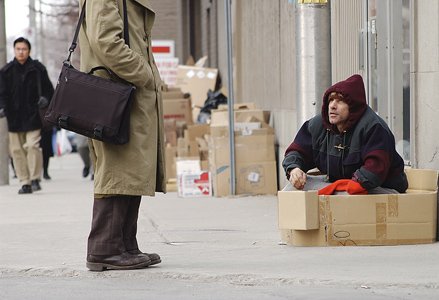On May 2, 2016, a funding announcement by the U.S. Department of Housing and Urban Development (HUD) drew little attention in the local media, but will have reverberations for years to come for Baltimore City’s efforts to end homelessness. HUD announced the second phase of its annual awards for homeless services to jurisdictions throughout the country. Unfortunately, Baltimore City fared very poorly in this funding competition. Only two of 20 existing projects were awarded funding in this second phase— a devastating loss of $3.8 million in funding for Baltimore City. Gone in an instant were commitments for annual funding that had been in place, in many cases, for decades that have helped thousands of people out of homelessness and into self-sufficiency and stable housing. The loss of these resources will significantly impact citywide efforts to end homelessness by reducing housing options for the most vulnerable citizens who are homeless. The result will be increased homelessness, and longer shelter stays due to less turnover of shelter beds, straining services that were already stretched thin before these cuts.
How is it that Baltimore lost such a substantial amount of funding, especially given that HUD actually substantially increased the available funding nationwide and many jurisdictions across the country actually gained funding? The reason is a lack of a clear vision and direction in Baltimore City, and insufficient efforts to lead change. In recent years, HUD has made it clear that local jurisdictions would need to reallocate funding from transitional housing to permanent supportive housing and rapid re-housing programs. To encourage this shift, HUD gave permanent and rapid re-housing housing programs clear priority in its funding notices and increased the competitive nature of the funding process overall. Many cities and states moved swiftly to adapt to this new approach in order to be competitive. Unfortunately, Baltimore City did not, and the result is that we have lost $3.8 million in vital homeless resources to other jurisdictions— resources that will be very difficult to get back in future years. It’s a severe loss that the city can ill afford at this time.
In an earlier round of funding, Baltimore City was able to secure additional money for 55 permanent supportive housing units designed to serve chronically homeless individuals. However, this is small consolation for failing to protect existing resources, many of which serve homeless women and families. Baltimore should have preserved its existing funding and gained even more funding in this competition. The cumulative loss in housing units and homeless services for the 18 programs that were defunded will dwarf the 55 units gained in the earlier round of funding.
Over the last several months, out of wide-spread recognition that the Baltimore City’s governance, structure, and approach for homeless services was not functioning at a competitive level, the Journey Home Board of Directors (the local board for homeless services in Baltimore) has undertaken a planning effort to re-imagine the leadership, governance, and grantee operations that are currently housed in Baltimore City government. The goal is to create a more effective, unified, and coordinated entity for ending homelessness in Baltimore. With the severe blow dealt by these HUD cuts to local homeless services, this planning effort must now take on new urgency. Hopefully, this effort will result in bold and innovative thinking, and dramatic changes to how homeless services are governed, managed, and supported here in Baltimore City.
Baltimore City is in serious danger of backsliding in its efforts to make progress in ending homelessness. We as a community can’t afford that. It is time for new leadership; a better structure; more open and transparent communication; greater collaboration; increased local funding for homeless services; and broader involvement by homeless services providers; businesses; civic leaders; government agencies; and the philanthropic community to finally and definitively make homelessness in our community a thing of the past.
John J. Schiavone is president and CEO of St. Vincent de Paul of Baltimore, and a member of the Journey Home Board of Directors
